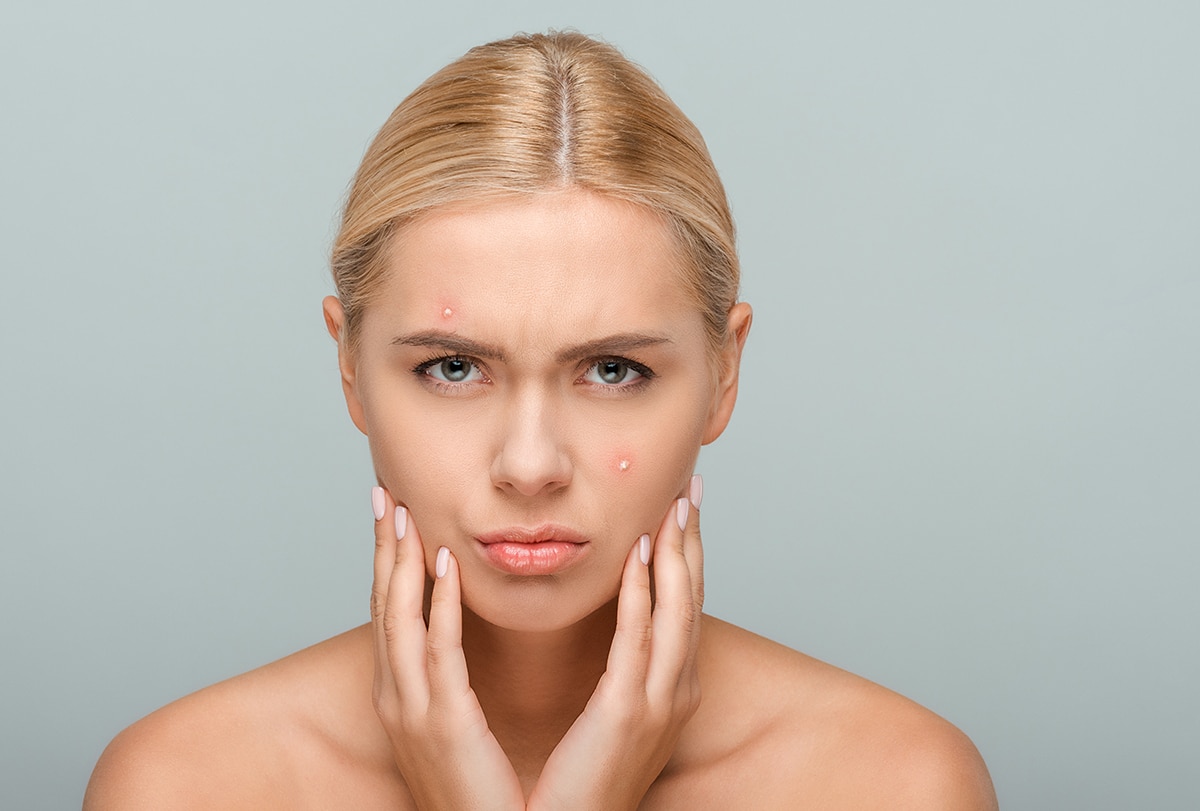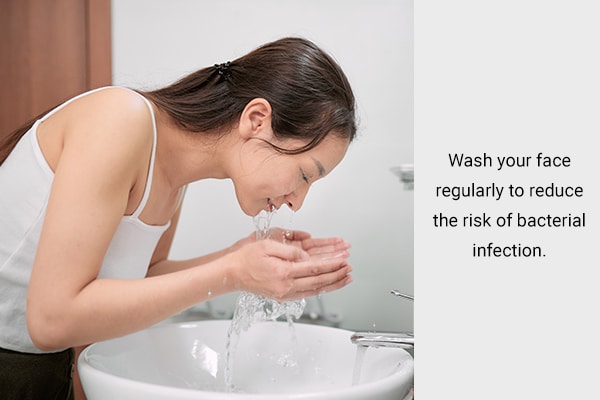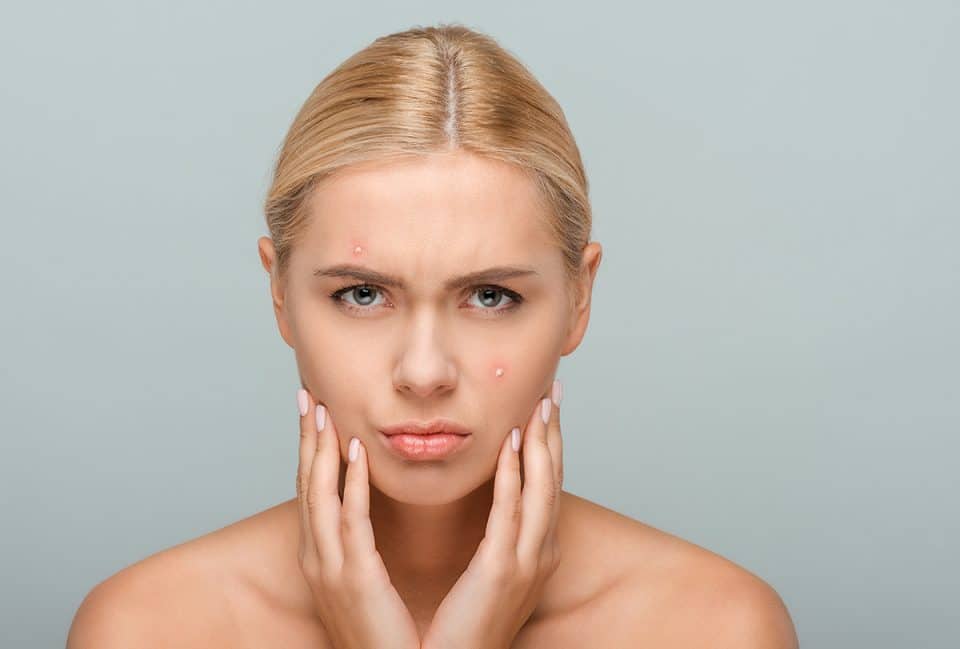Have you ever gotten a pimple of acne just in the week of a big event? Or perhaps you spot an angry red zit and immediately know your period will follow in a day or two?

Well, you would not be alone. Hormonal fluctuations around periods of stress or monthly cycles can indeed cause acne!
But it is not high levels of estrogen but high levels of circulating progesterone and testosterone that cause acne. Estrogen levels are lowered during these times, contributing to sudden acne flare-ups. (1)
What Is Estrogen?
Estrogen is the main female sex hormone responsible for developing feminine characteristics such as: (2)
Fluctuations in estrogen levels occur during the monthly menstrual cycle, where they drop after ovulation occurs. Estrogen is also significantly lowered when menopause occurs. (3)
Estrogen and Acne – The Link
Testosterone is usually the most widely studied contributor to hormonal acne, where multiple studies have reported that high testosterone levels cause acne by increasing sebum production in the skin. (4)
Estrogen suppresses this sebum production and thus can effectively reduce acne. However, since the amount of estrogen required to suppress sebum production is a high dose, it might cause side effects.
For this reason, oral contraceptives containing 20–50 mcg of estrogen are often prescribed to inhibit the production of male hormones via the ovaries. The reduced levels of testosterone ultimately help in controlling acne. (5)
Hormonal therapy that involved giving supplements that include estrogen is particularly useful for treating menopausal acne.
Menopause is a period of low circulating estrogen, and acne flare-ups are fairly common. Doctors will therefore often treat them with oral contraceptives (that contain estrogen) or spironolactone, which lowers the levels of male hormones. (6)
Therefore, low levels of circulating estrogen can lead to acne.
How to Manage Acne

Acne that occurs due to estrogen fluctuations usually resolves on its own when levels stabilize. In the case of flare-ups, a dermatologist can recommend medication that works by normalizing hormones along with topical medications.
Other ways include: (7)
- Washing the face regularly to reduce the risk of bacterial infection
- Eating a diet high in antioxidant-rich foods
- Keeping the skin hydrated with a moisturizer
Most-Asked Questions About Estrogen and Acne
Can I get steam facials to clear acne?
Hormonal acne usually doesn’t respond to external or topical remedies. Your best chance is to consult a dermatologist and manage stress levels.
What are some prescribed medications that can help in dealing with hormonal acne?
Your doctor will evaluate your acne, and first-line treatments will include oral contraceptives, topical retinoids, and medication in the form of tretinoin, benzoyl peroxide or salicylic acid, and antibiotics. (6)
It is highly recommended that you do not self-medicate for acne as side effects can be severe.
How would I know that my acne is due to hormonal issues?
Acne that appears on the lower region of the face, particularly around the chin and jawline, is a tell-tale sign of hormonal acne. However, consulting a dermatologist to identify the cause of acne is highly advised.
Can I increase my estrogen levels through diet?
Certain foods can act as phytoestrogens. This means they can mimic estrogen and bind to its site to act as estrogen. Soybean is one such food. (8)
Other foods rich in phytoestrogenic compounds include garlic, celery, carrots, potatoes, sweet potatoes, apples, and pomegranates. Flaxseeds are also beneficial. (8)
Practical Takeaways
- Hormonal acne occurs due to fluctuating levels of hormones.
- Estrogen usually prevents acne from forming, and its deficiency will cause acne.

